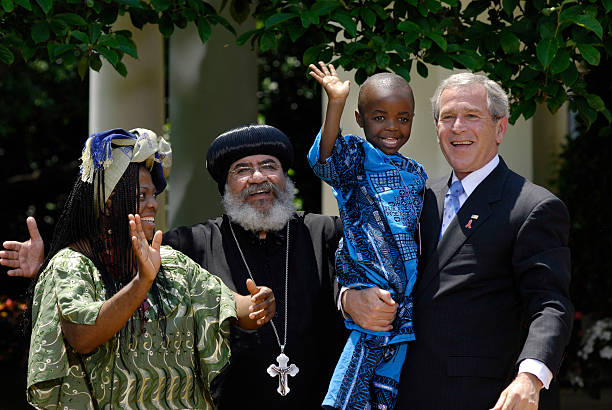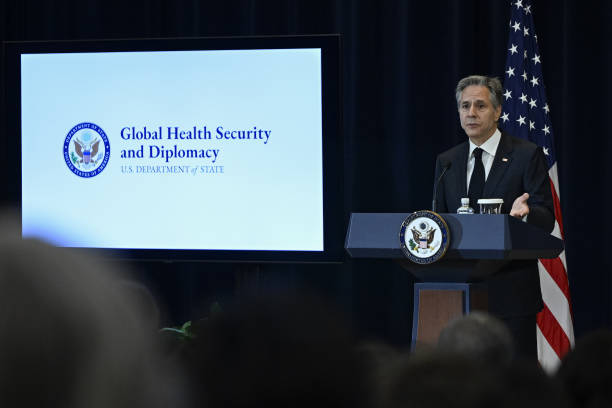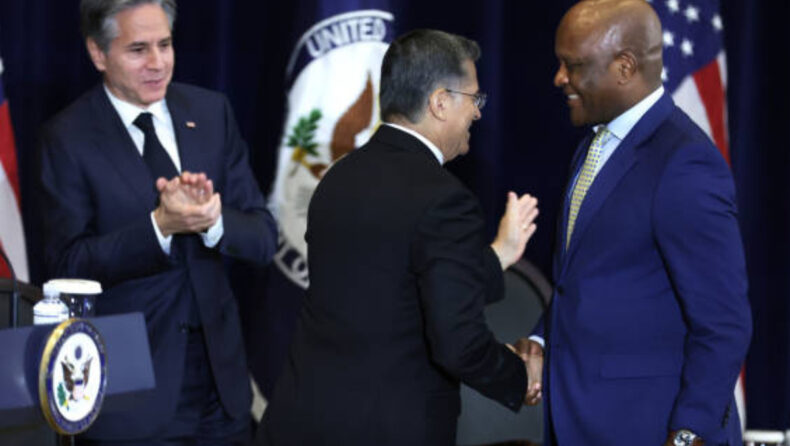The U.S. State Department has established a new bureau on Tuesday with the objective of ensuring that combating global outbreaks remains a sustained priority of U.S. foreign policy. However, this effort comes at a time when one of its successful initiatives, an HIV program, is embroiled in a political dispute over abortion.
As part of the new bureau, the President’s Emergency Program for AIDS Relief (PEPFAR), a 20-year-old initiative, will be included. While not widely known among Americans, PEPFAR has exceeded most initial expectations in its efforts to combat the AIDS crisis and is recognized for saving as many as 25 million lives across the globe.
PEPFAR bureau
The primary focus of PEPFAR’s initiatives is to increase access to HIV prevention, treatment, and care interventions, such as antiretroviral treatment, pre-exposure prophylaxis, voluntary male circumcision, condoms, and other commodities related to HIV services.

The newly launched bureau will be headed by John N. Nkengasong, a public health official who played a crucial role in PEPFAR. Nkengasong, originally from Cameroon, was instrumental in establishing the U.S. Center for Disease Control and Prevention’s African operations. He also helped establish some of the first advanced laboratories in sub-Saharan Africa for HIV and AIDS research.
PEPFAR was launched in Africa in 2003 by President George W. Bush and has continued to receive bipartisan support. However, certain anti-abortion groups and some House Republicans, such as Rep. Chris Smith of New Jersey, are advocating for the inclusion of abortion-related restrictions on U.S. health aid abroad in the reauthorization legislation. They are also pushing for annual votes on PEPFAR’s continuation.
Although the Democratic-controlled Senate is anticipated to oppose any GOP stipulations on the HIV program, the ongoing disagreement highlights the fact that the PEPFAR program may now be subject to U.S. abortion politics in the future.
During a ceremony for the newly established Bureau of Global Health Security and Diplomacy, Secretary of State Antony Blinken briefly mentioned the abortion-related dispute that could jeopardize PEPFAR’s typically guaranteed support from lawmakers. He expressed his hope that Congress would authorize the program for another five years without any changes.
Over the course of 20 years, the U.S. has provided $100 billion in support to the PEPFAR program, which is recognized for its significant contributions to lasting improvements in global healthcare systems.

Nkengasong played a key role in creating one of the very first HIV drug programs run by a local government in Ivory Coast, during a time when HIV and AIDS medications were both scarce and prohibitively expensive for most individuals in sub-Saharan Africa.
Statements from the bureau
During the launch of the new bureau on Tuesday, Nkengasong emphasized that the valuable insights gained from the U.S. HIV program are frequently employed in tackling other global health threats on a regular basis.
According to Samantha Power, the leader of the U.S. Agency for International Development, the remarkable expansion of the PEPFAR program across Africa and other regions of the world over several decades has made it “the most significant health accomplishment in human history.”
Samantha Power drew attention to the economic and human cost of the COVID-19 pandemic and warned that the warming climate and other factors could raise the likelihood of another pandemic on a scale similar to COVID by up to 40% during our lifetimes.
According to Secretary of State Antony Blinken, the establishment of the new bureau aims to elevate health security as a priority on a global scale, strengthen the capabilities of U.S. diplomats and local healthcare systems worldwide in containing outbreaks, and maximize the impact of U.S. assistance to healthcare systems globally.













